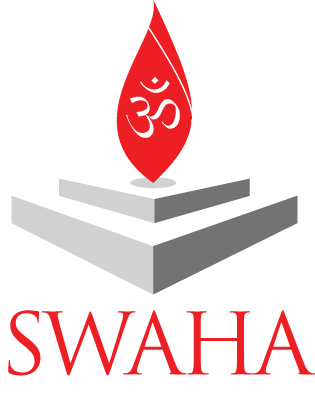Pt. Jaidath Maharaj, M.Ed. (dist.)
President, SWAHA International
SWAHA continues to grapple with the COVID-19 pandemic, as are all other organisations, currently. While the Government of the Republic of Trinidad and Tobago (GORTT) has given permission for organisations, including places of worship, to resume services, SWAHA has decided to postpone the recommencement of activities until August 2020. As a responsible organisation, SWAHA is currently developing policies and guidelines to ensure the safety of the membership as a critical priority. Consistent with good Health, Safety, Security and Environment (HSSE) practices, SWAHA has put people at the centre and adopted a people-centric approach to its operations thereby securing the safety of its key stakeholders, its membership. Crisis management puts the safety of human life as the first priority.
As organisations continue to define its “new normal”, SWAHA has held discussions at the highest levels to chart the way forward in these unprecedented times. In this article we share some of the new approaches adopted for sustainability and growth of the organisation.
Governance Structure
SWAHA has recently developed guidelines for its governance at the board level to align with the natural evolution of the organisation. SWAHA boasts of a membership constituted of professionals in various areas who are committed to making a contribution through the organisation. To facilitate this, SWAHA has adopted best practices in corporate governance to ensure that it fulfills its compliance and performance functions adequately. The Dharma Mandal of SWAHA is constituted of executive directors and non-executive directors to ensure focus on both functions. The National Executive is strictly an executive body and bears responsibility for the planning and execution of national events and projects guided by the policy of the board. This ensures that we meet all legal requirements asked of non-profit organisations (NPOs) while at the same time focusing on the long term growth and sustainability of SWAHA.
The impact of the global pandemic coupled with global recession has negatively affected the inflows to the organisation. This has debilitating effects on the long-term sustainability and growth of the organisation. SWAHA therefore must focus on grant funding, endowments and other sources of local and international funding for sustainability and growth. Funding and grant organisations require a robust governance structure, serving as an impetus for the changes to our governance. SWAHA will be adding independent directors to assure funding and grant agencies that SWAHA is well poised to manage funding in a transparent and professional manner.
Organic and Inorganic Growth
SWAHA is seeking to grow through the expansion of membership and strengthening internal mechanisms (organic growth). We have also seen the need for inorganic growth. This comes in the form of strategic alliances, partnerships and associations. This has manifested itself in the form of collaboration with similar organisations on religious dates, invitation to Hindu organisations to participate in events, inclusion of affiliates in the SWAHA network and creating linkages with formal bodies such as the Indian High Commission to Trinidad and the Shri Krishna Janmasthan, India.
SWAHA will continue to forge alliances with organisations that serve similar purposes to amplify the efforts and gain synergies, aimed at best serving the national community. These alliances will be formalized through Memoranda of Understanding (MOUs) related to areas such as education, social development, religious education, environmental sustainability, gender issues and poverty reduction. This will catapult SWAHA into the public domain as an organisation serving the best interest of its members and the national community through the ideal teachings of Sanatan Dharma.
In next month’s article we continue exploring the topic “What may SWAHA look like post COVID-19” as we explore the shift from “brick and mortar” to a greater virtual presence.
SWAHA invites its members and members of the national community to reach out to us and offer your ideas on the steps SWAHA should take to contend with the current global pandemic and to evolve further for survival and growth in the future. You may send your contributions via email to: swahainternational@gmail.com



